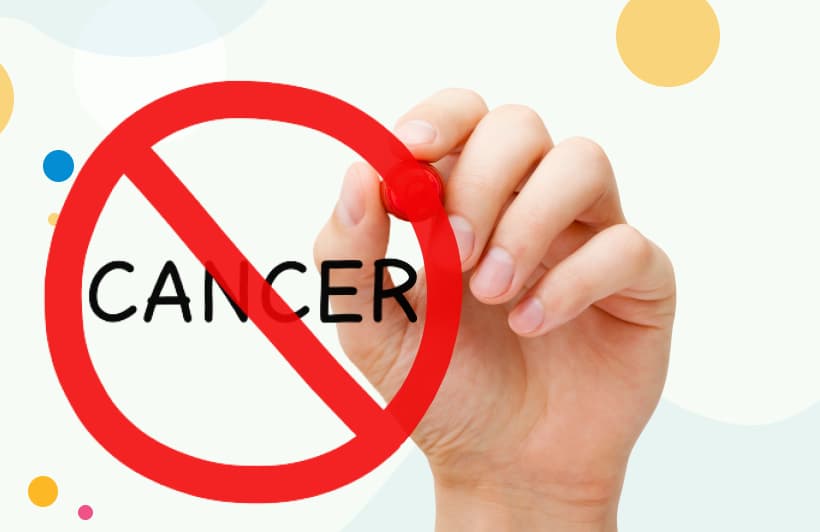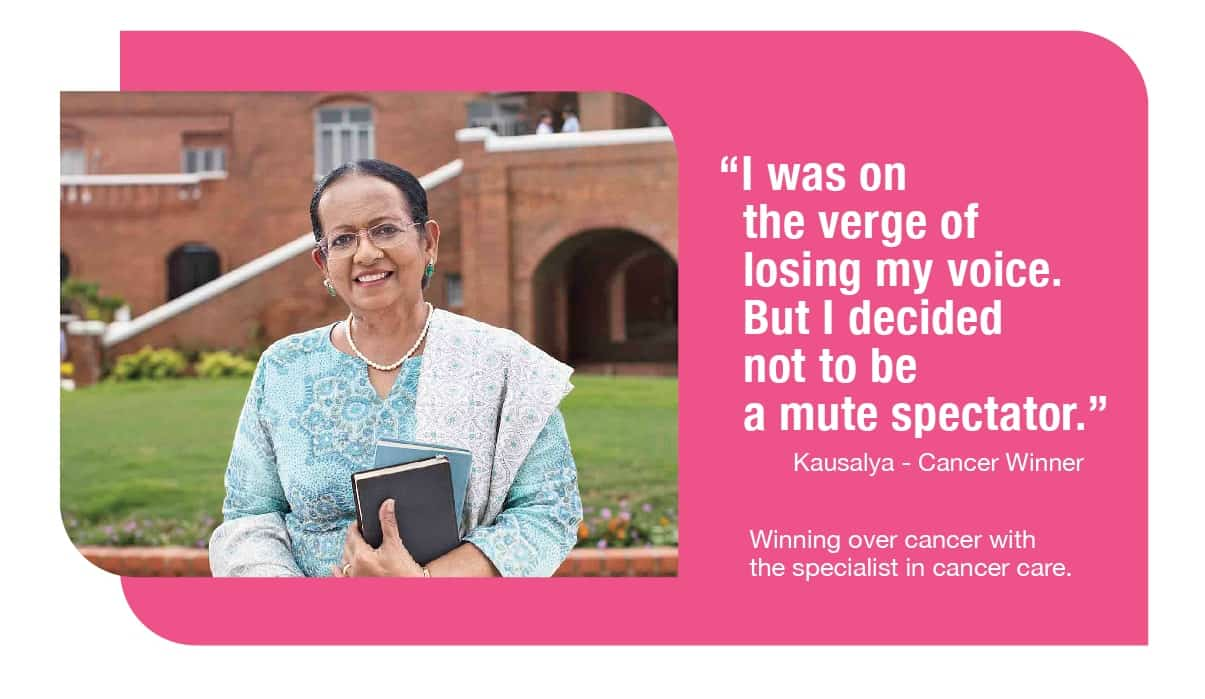
01 Nov, 2025
Feel free to reach out to us.

01 Nov, 2025
If there is one health condition that can lead to instant worry, concern, frown, anxiety, and a plethora of negative emotions, the moment it gets diagnosed, it is undoubtedly cancer. If not managed on time, cancer can become a potentially life-threatening condition that affects any body part at any age, irrespective of gender.
Though research experiments are going in full swing on what exactly causes cancer cells to emerge and grow exponentially in the human body, expert oncologists, oncosurgeons, and others from the medical fraternity agree in unison that certain lifestyle and dietary modifications help in keeping this deadly condition at bay. Among adults, a large percentage of cancer risks are caused by lifestyle factors, and this makes reducing the cancer risk possible.
“How to reduce cancer risk?” - is a very common question that people ask their doctors. In this article, we are listing the 7 best ways to reduce the risk of various types of cancer.
Tobacco in all its forms, be it a cigarette, cigar, or any other avatar, is injurious to health. It is proven beyond doubt that smoking plays a significant role in increasing lung cancer risk and is one of the key risk factors for bladder, kidney, and esophageal cancers. Quitting tobacco can help prevent lung cancer and other cancer types.
Consumption of smokeless tobacco, which includes paan, gutka, supari, etc., is identified as the biggest risk factor for head and neck cancers in the northern states of India. Quitting smokeless tobacco can help with oral cancer prevention.
A balanced diet plays a pivotal role in preventing cancers of many kinds. One may indulge in foods that are rich in vitamins and minerals, low calorie, high in dietary fiber, whole grains, etc. It is crucial to avoid packaged, processed foods, especially meats, and aerated and artificially sweetened beverages.
Consuming a wide array of raw or cooked vegetables, relishing fruits, and biting into nuts can help reduce the risk of various types of cancer. Craving for deep-fried, high-calorie foods is normal, but it is important not to eat them in large quantities. One may consume these foods in smaller quantities, along with fiber-rich foods and warm water.
Both fruits and vegetables are rich in micronutrients, such as vitamins, minerals, and antioxidants, which help reduce cancer risk by keeping the immune system healthy, neutralizing free radicals, and improving overall health.
Inside the body, alcohol breaks down into acetaldehyde, which is an important risk factor for various types of cancer. Moderate to heavy drinkers have a relatively higher risk of getting cancer than those who do not drink at all. Therefore, refraining from alcohol consumption completely or limiting its consumption is necessary to reduce the overall risk of multiple cancer types.
Processed meat refers to meats containing chemicals - nitrates, nitrites, polycyclic amines, and heterocyclic amines, which may be added while processing or produced while cooking. These chemicals damage the cells lining the intestinal wall and increase the risk of bowel cancer.
Limiting the consumption of processed meats is an effective cancer prevention strategy to reduce the risk of various types of GI cancers, namely colon cancer, rectum cancer, and stomach cancer.
Onco-dieticians recommend various foods to eat to prevent cancer. Foods with anti-inflammatory, antioxidant, and anti-cancer properties should be included in the daily diet to reduce the risk of the formation of various types of cancer.
Learning about the best foods to prevent cancer is important, as these foods not only reduce the chances of cancer formation but also the development of various other lifestyle-based medical conditions. The following are the top 6 foods that prevent cancer:
Certain fruits, such as raspberries, strawberries, blackberries, oranges, sweet lime, apples, and pears, have excellent antioxidant and anti-cancer properties and can help avoid cancer of various types.
Fiber-rich vegetables, such as cabbages, broccoli, cauliflower, legumes, beetroots, and carrots, can be an excellent addition to a cancer-prevention diet. Bio-components like flavonoids (carrots), sulforaphane (cruciferous vegetables), and lycopene (tomatoes) have antioxidant and anti-cancer properties, which help reduce the chances of developing multiple cancer types.
Whole grains are a rich source of dietary fibers, phenolic acids, phytic acids, lignans, phytoestrogens, essential minerals, resistant starch, and other phytochemicals that have been found to reduce the risk of various types of GI cancer. Whole wheat, buckwheat, barley, bajra, ragi, oats, millets, and maize are some of the important whole grains that one may include in their daily diet to lower their cancer risk.
Herbs like ginger, garlic, and turmeric contain various anti-inflammatory and anti-cancer active components that may help reduce cancer risk if included in the daily diet. Spices like cinnamon, black pepper, clove, cardamom, cumin, etc., may also help avoid cancer of a broad spectrum through their anti-inflammatory properties.
Protein-rich foods may promote cancer prevention by supporting cell repair, aiding DNA repair, promoting enhanced immunity, and providing antioxidants that combat free radicals. Additionally, proteins contribute to hormone balance and help maintain an optimum body weight, collectively reducing the risk of cancer.
Almonds, walnuts, and pistachios are rich in antioxidants, fiber, and healthy fats. These nutrients, along with their protein content, contribute to a well-balanced diet that may help avoid cancer of various types.
An active lifestyle dotted with regular exercise is quite imperative in preventing cancer. Being overweight or obese can also contribute to various types of tumors, including breast, lung, prostate, kidney, and colon. Doctors strongly recommend 150 minutes of walking or any other moderate aerobic activity, 30 minutes of intense workouts for 3 days a week, or a combination of both for maintaining a healthy weight.
Outdoor activities like bushwalking, surfing, or cycling boost overall health and help bring down cancer risk too.
Walking is a simple yet effective exercise to prevent cancer. Walking 8000-10000 steps a day can promote healthy weight management and reduce the risk of various types of cancer.
Sports like soccer, netball, and tennis foster fitness and good health and thereby may help avoid cancer of several types.
Regular dance engagement adds to fitness, potentially supporting cancer prevention.
This holistic practice combines movement, meditation, and breath control and may offer benefits in stress reduction and cancer prevention.
Walking, especially brisk walking, is a convenient and effective way to stay active, contributing to overall health and potential cancer prevention.
Incorporating high-energy activities like skipping rope or playing ball games improves fitness and helps avoid cancer of various types.
Harsh ultraviolet sun rays can cause serious skin damage, and this is the most common cause of skin cancer. It is possible to reduce the risk of skin cancer significantly by staying away from sun rays shed during the day, applying sunscreen, wearing sunglasses, wearing loose-fitting cotton clothing, etc.
One should also be mindful of avoiding carcinogenic gases like radon and arsenic in water to prevent cancers of the lungs, bladder, and kidneys.
It is important to avoid the midday sun by limiting outdoor activities during noontime. One may opt for morning or late afternoon outings to reduce sun exposure, safeguarding the skin from potential damage.
Direct sunlight needs to be avoided, especially between 10 am and 4 pm. One may seek shade under trees or use umbrellas or other structures. This may protect the skin against harmful UV radiation and reduce the risk of skin cancer.
While going in the sun, one may consider wearing long sleeves, pants, and wide-brimmed hats for protection against harmful UV rays.
Applying a water-resistant broad-spectrum sunscreen with at least SPF 30 protects against harmful UV rays and helps reduce the risk of skin cancer.
Artificial tanning through tanning beds or sunlamps should be avoided, as these emit harmful UV radiation and can increase one’s skin cancer risk.
Stress is one of the key factors that can affect overall wellness. Many studies have proved that intense amounts of stress and lack of sleep can lead to various chronic ailments, including diabetes, hypertension, and hormonal imbalance, making the body prone to viral infections, which in turn increases the risk of various types of cancer. Learning the different methods to manage stress can help one lead a healthy life and potentially avoid cancer.
Vitamin D is a crucial nutrient that is responsible for regulating various bodily functions. The body needs sunlight to synthesize the active form of vitamin D; therefore, one must spend time in sunlight, especially between 6 am and 10 am. Researchers believe that periodic replenishment of vitamin D reduces the risk of cancer that affects the prostate, colon, and other organs
Those over 40 should consider regular health checkups, as these promote early detection and timely treatment of cancer. Women above this age group and close to menopause are highly recommended to get their annual pap smear done to rule out cervical cancer, while men should take care of prostate functioning. Those with a family history of cancer must take extra care.
Eating healthy, exercising regularly, refraining from the consumption of tobacco and alcohol, avoiding prolonged exposure to UV light, and opting for regular health checkups and cancer screening are some of the very important measures that can potentially avoid cancer of various types. Also, these measures are extremely helpful in reducing the risk of various lifestyle-based health diseases. Adopting these cancer prevention measures not only helps one reduce their risk of various types of cancer but also helps them live a long and healthy life.
Various risk factors contribute to increased cancer risk; any one factor cannot be identified as the strongest. Some of the biggest risk factors for cancer include obesity, a sedentary lifestyle, tobacco and alcohol consumption, unhealthy food habits, prolonged exposure to the sun, certain inherited genetic mutations, and increasing age. The risk factors that lead to cancer development may vary from one patient to another, and risk factors are one of the significant aspects considered during treatment planning.
The relationship between stress and cancer has been studied for years. Most studies have found that stress alone is unlikely to directly cause cancer. However, it can become an indirect cause by contributing to unhealthy behaviors, such as substance abuse, sedentary lifestyle, poor diet, etc., that may increase cancer risk. Therefore, chronic stress cannot be ignored. Stress management techniques and a healthy lifestyle can decrease cancer risk and help individuals lead healthy lives.
Negative emotions may not be a direct cause of cancer. However, being emotionally distressed for long periods of time may harm overall health by affecting lifestyle choices. Emotional and mental health are as important as physical health, and therefore it is necessary to pay attention and maintain emotional well-being through healthy coping strategies.
The relationship between depression and cancer is complex. While depression may not cause cancer, its impact on lifestyle choices may increase the risk of cancer development. It may also lead to a compromised immune system, which is another risk factor for cancer. Managing depression with appropriate intervention may help reduce the risk of various types of cancer.
Preventing cancer or stopping cancer cells from growing involves a combination of various prevention strategies, such as a balanced diet, regular exercise, quitting tobacco, limiting alcohol intake, and avoiding prolonged exposure to UV rays/sun. Regular screenings or health checkups are crucial too. Additionally, some medical interventions, like vaccinations and certain medications, can also help reduce the risk of certain cancer types.
Regular exercise is found to bring down the risk of various cancers. By maintaining a healthy weight, boosting the immune system, and regulating hormones, exercising contributes to reducing cancer risk.
Various factors, such as the type of cancer, overall health of the individual, and individual lifestyle, determine the exercise’s impact on cancer risk reduction. Aiming for at least 150 minutes of moderate-intensity exercise per week may improve overall well-being and reduce the risk of various types of cancer.
